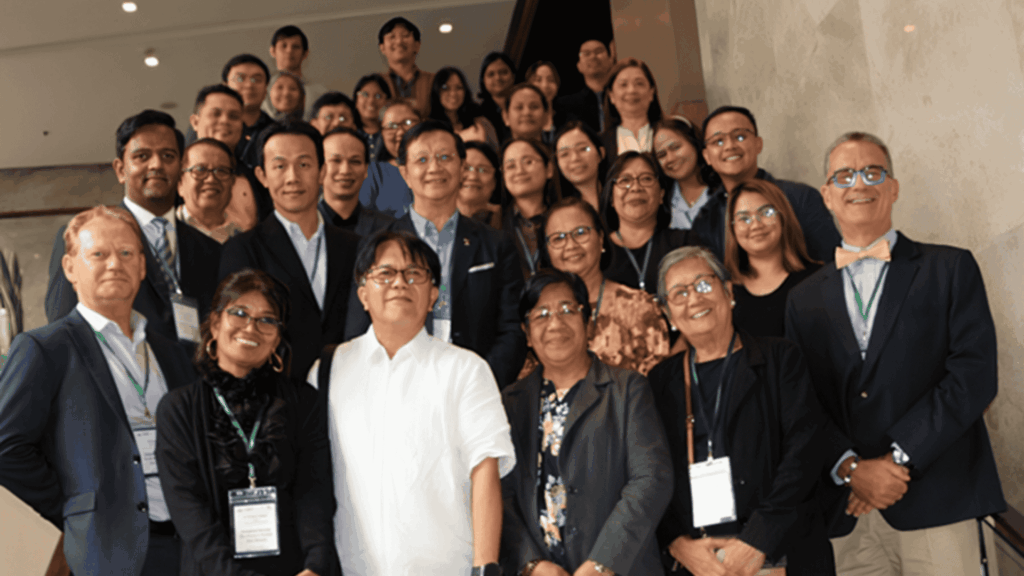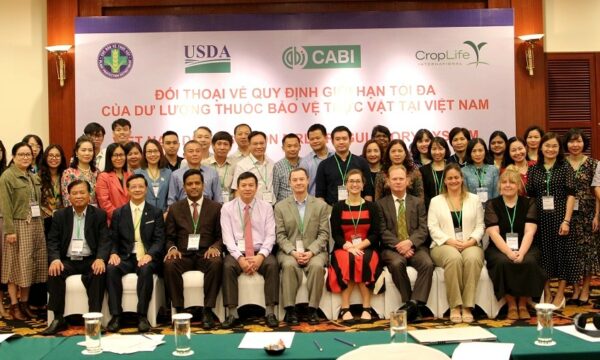
CABI together with the United States Department of Agriculture (USDA) and the Fertilizer and Pesticide Authority (FPA) of the Philippines have produced working manuals to help strengthen harmonization of the pesticide landscape in the Philippines.
The manuals include guidelines that ensure consistency in reviewing pesticide registration on globally accepted practices based on bio-efficacy and residue data, especially in the face of staff generational turnover.
This success represents a significant advancement in harmonizing regulatory frameworks of the Philippines which is a member country of the Association of Southeast Asian Nations (ASEAN). This is working towards safer and more sustainable food production, greater livelihoods for smallholder farmers and their communities as well as food security.
Regulatory systems to support quality and sustainable agricultural trade
Since March 2023, the joint efforts of USDA with CABI and FPA focused on enhancing regulatory systems to support quality and sustainable agricultural trade. The collaboration gained momentum following the launch event held in Malaysia, which laid the foundation for regional engagement, including the bilateral engagement with FPA, Philippines.
The launch event facilitated active engagement of regulators from various divisions of the Department of Agriculture in the Philippines, including FPA, Bureau of Agricultural Research (BAR), and Bureau of Agriculture and Fisheries Standards (BAFS), along with industry partner, CropLife Asia.
Stakeholders highlighted an opportunity to streamline and develop a harmonized and science-based approach to enhance collaboration among the regulatory authorities to support a science-based decision for pesticides registration in the country.
The guidelines and working manuals were developed by several defining engagements:
Initial engagement and capacity building:
The collaboration began with introductory sessions that brought together officials from FPA, the Bureau of Plant Industry (BPI), and the Bureau of Agriculture and Fisheries Standards (BAFS). These early interactions were instrumental in building trust and understanding the regulatory gaps.
Formation of Expert Working Groups (EWGs):
Cross-functional teams consisting of regulators, technical experts, and evaluators were formed. These EWGs played a pivotal role in drafting, reviewing, and refining the working manuals.
Review and public consultation:
Draft versions of the working manuals underwent multiple reviews and a formal consultation process. This ensured transparency and allowed various stakeholders, including industry partners, to provide input.
Official approval
In January 2025, FPA formally approved the working manuals.
Upcoming recognition
These approved working manuals will be officially featured as part of a book launch during the FPA Anniversary event in May 2025 – further validating their national significance.
Pesticide registration and maximum residue level (MRL) compliance are critical to both local food safety and international trade. By standardizing how bio-efficacy and residue data are evaluated, the approved manuals pave the way to:
- ● Rapid and more reliable registration processes
- ● Greater confidence among local and international stakeholders
- ● Improved alignment with ASEAN-wide regulatory frameworks
- ● Strengthened capacity to handle import MRL requests
These outcomes are not merely procedural—they directly support Filipino farmers and exporters in accessing new markets with fewer regulatory hurdles.
Dr Babar Bajwa, Senior Regional Director, Asia/Project Executive at CABI, said this significant achievement highlights the collective commitment of FPA, CABI, USDA, and industry partners like CropLife Asia in developing sustainable, science-driven regulatory systems.
FPA Executive Director, Dir. Glenn DC. Estrada, said, “The partnership between USDA, CABI, and FPA has strengthened our capacity to develop practical, science-based regulatory frameworks. The approved work manuals serve as essential references for smarter regulations and sustainable agriculture. This milestone highlights the impact of proactive stakeholder engagement in enhancing regulatory practices, ultimately benefiting Filipino farmers and consumers. We greatly appreciate this international collaboration and look forward to continued cooperation.
Lindsay Malecha, Program Manager at USDA, reflected “Our collaboration, and the leadership of FPA and other stakeholders, will enshrine science-based practices and support consistent evaluations that give farmers access to safe and effective tools, and traders confidence in the Philippines’ system.”
The journey of approving the pesticide registration working manuals in the Philippines is more than a regulatory success – it is a testament to what can be achieved through meaningful, international collaboration. With the upcoming FPA anniversary event and the next phase of engagement on the horizon, this success story stands as a model.
As CABI, USDA, and their partners continue to chart a path toward greater harmonization and sustainability, the Philippines’ experience offers valuable lessons in resilience, innovation, and regional leadership.
Way forward: Engagement through 2025
Building on these success stories, USDA Foreign Agricultural Service and CABI along with their partners will continue collaborative engagement with FPA and relevant departments through the USDA Assisting Specialty Crop Exports (ASCE) initiative. Trade with Southeast Asia is important and a growing market for US farmers, and opportunities to facilitate exports to the region through this collaboration will be focusing on:
- ● Managing import MRL requests more efficiently
- ● Enhancing systems for MRL establishment and implementation
- ● Including BPI and BAFS as active contributors to ensure a whole-of-government approach
The next phase aims not only to consolidate existing gains but also to position the Philippines as a key contributor to ASEAN-wide regulatory harmonization efforts.
Additional information
Main image: Fertilizer and Pesticide Authority, Bureau of Agricultural Research, and Bureau of Agriculture and Fisheries Standards, CropLife Asia, USDA-FAS Post Manila & CABI Officials during Write shop of working Manuals in July 2024 – Quezon City, Philippines.
Authors
Dr Sabyan Faris Honey – Project Manager
Saqib Ali – Communication Officer
Related Stories
Partnership committed to strengthening sustainable agriculture and trade in the Philippines
Related News & Blogs
Webinar series investigates greater use of biopesticides to combat crop pests and diseases in Caribbean
CABI has facilitated a webinar series which investigated the prospect for greater utilization of biopesticides for combating potentially devastating crop pests and diseases affecting livelihoods and food security in the Caribbean. The webinars followed…
3 July 2024





